Module 3. Dimensions of Digital Citizenship
Dimensions of Digital Citizenship

'Great power brings great responsibility with it.' It is a statement that explains the
importance of the concept of digital citizenship very well. In our age where access to
information is unlimited and very easy, encountering inappropriate content can be pushed
into dangerous situations by people who introduce themselves differently. NINE ELEMENTS OF
DIGITAL CITIZENSHIP, which we will focus on in this course, aims to enable our students
to use online environments rationally, critically, responsibly and critically by leaving a
mark in their lives.
1-DIGITAL ACCESS:
Digital access means accessing and viewing existing data in online environments.Having digital
access also means accessing these data quickly.
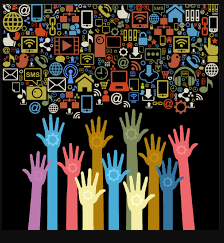
The fact that the internet becomes accessible by the masses day by day and its rapid
widespread consequently contributes to social development, especially broadband internet, Web
2.0 technologies, 3G and now, in a world where we started to talk about fiber internet, the
internet has started to turn into an indispensable platform.
2-DIGITAL COMMERCE:

Being aware of the dangers that may come to the fore with e-commerce means to know what to do
in such a situation.
Question: Do students know the advantages and disadvantages of online shopping?
3-DIGITAL COMMUNICATION:
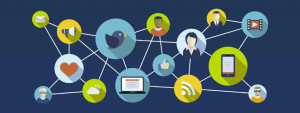
Digital Communication is receiving and sending information and documents online.
Question: What are the important points and ethical values when communicating in this world?
It is important for our communication security to learn to protect personal identity
information, create strong passwords or to know what kind of information is kept with our
personal computers, phones or tablets while downloading programs and files.Otherwise, our
identity information may be stolen or our accounts may be compromised by viruses. It will be
beneficial for us to learn and teach some concepts such as malware, phishing, spyware, spam,
junk that appear in English.
WHY DOES IT MATTER?
If personal data is not protected, there are risks such as identity theft and financial loss. The things that can be done to prevent these risks are listed below. Words that are easy to guess (information about any pet or their favorite team) should not be chosen. - Passwords should not contain any special information such as vehicle license plate, class number, date of birth. -The words in the dictionaries should not be used as passwords, because information thieves use decryption programs that try the words in the dictionary one by one. -When determining the password, letters, numbers and symbols must be used. -Failure to download free games, videos or programs to computers, tablets and phones will prevent risks. -Messages or mails that have been sent in large numbers are covered by spam and it should be taught that this is actually the same as spam and these messages or mails should never be opened.
4-DIGITAL LITERACY:
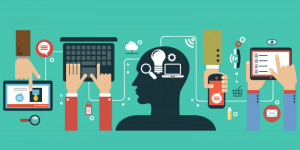
Teknolojiyi takip etmek,yeniliklerden haberdar olmak ve kendini sürekli yenileyen teknolojiyi kullanarak yeniliklere hızlı bir şekilde uyum gösterebilmek demektir.
Soru:Dijital okur yazarlık bağlamında öğrenciler ne tür faydalar sağlayabilirler?
5-DIGITAL ETHICS:
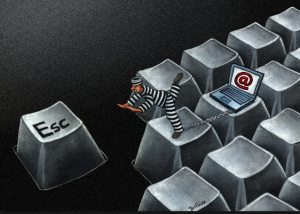
The fact that any moral concept that exists in real life also exists and should be in online
environments is called Digital Ethics. One of the best examples of digital ethics is the Right
to Use. For example, young users or young people who have not been informed about the issue
of digital ethics may think that they can copy and use the work of others. However, the right
of use is a subject determined by law. The materials used and the studies that have included
their own sentences and approaches by taking inspiration are outside of this law, but it
should be known that downloading videos, movies and music from free sites is equivalent to
theft.
WHY DOES IT MATTER?
Our students should be educated about how to use resources such as documents, songs, videos,
books, films and games they find on the internet, and the effort spent during the production
of these products should be explained and they should be respected.
6-DIGITAL SECURITY:
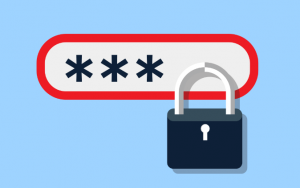
It means that our students are aware of the uniqueness in digital environments and secure
themselves in these environments. Young people and children are interested in spending time
on the Internet in different ways. They can chat online or live with their loved ones or
their families. However, we, as educators, should not forget that our students may encounter
malicious strangers while doing these activities on the internet and we should inform their
families about this situation. They may meet on media sites and aim to put our students in
unpleasant situations. These people often threaten to keep the relationship secret, or even
if they will do bad things if it is exposed. They can even offer to meet face to face.
WHY DOES IT MATTER? Derslerimizde ve projelerimizde yeri geldikçe öğrencilermize kötü niyetli yabancıların muhtemel amaçlarından bahsetmek oldukça önem taşımaktadır.Eğer yaş küçük ise velilerimizi internette geçirilecek olan süreler zarfında çocukları ile birlikte olmalarını önerebiliriz. Yaş küçükken internette kesinlikle kimse ile konuşmamalarını kesin bir dille anlatabiliriz ve ailelere de bu konuda öğrenciye destek olmalarını şiddetle tavsiye edebiliriz.Yaş büyüdükçe verdiğimiz eğitim sonucunda zamanla onları daha özgür bırakmalı ve izleyici olmalıyız.
7-DIGITAL RIGHTS AND RESPONSIBILITIES:
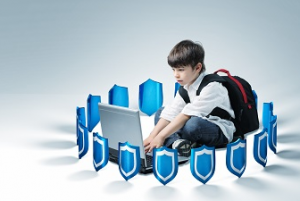
Everyone has rights and responsibilities in the digital world. Question: How can we reach this awareness in the online world to our students? Tell them how sensitive security is and let them understand how much you care about it. Ensure strict restrictions on texting, social media posts, and chatting - just explain how important it is for family members and family members to chat with friends they also know. Remind strangers that they should never share private information, documents or photos such as names, addresses, school numbers, phone numbers, or any age. Teach and reinforce user blocking behavior.
8-DIGITAL HEALTH:
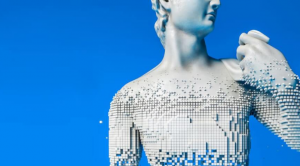
For most of us, it is to know the physically and psychologically correct and healthy living rules in this world, which is no different from real life. Question: How can internet and game addiction be prevented?
9-DIGITAL LAW:As in the real world, injustices, bullying and all kinds of bad behavior in the online world are subject to legal rules and sanctions. Question: In what situations do students violate the rights of others and break the law?

